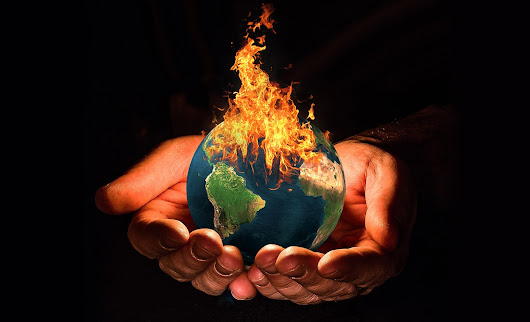
Global Warming Is Bad For The Environment The Intergovernmental Panel on Climate Change (IPCC) has stated that the primary cause of the increase in global atmospheric concentration of carbon dioxide (CO2) is the use of fossil fuels, with land-use change also playing a significant role, albeit to a lesser extent.
The Health Effects Of Global Warming: Global Warming Is Bad For The Environment
Global Warming Is Bad For The Environment Apart from the apparent consequences on people’s means of subsistence, it is anticipated that global warming would have a noteworthy and detrimental influence on human health. The people living in the nations with the lowest contributions to global warming are the ones most at risk from rising temperatures and the ensuing illnesses and fatalities. The health consequences of climate change will be more likely to affect coastal regions in sub-Saharan Africa, the Indian Ocean, and the Pacific Ocean.
According to the World Health Organization (WHO), climate change is already responsible for at least 150,000 deaths annually, a number that is expected to double by 2030. The consequences of global warming will have dire health implications, including:
Infectious diseases. The IPCC has forecasted that the impact of global warming on human health will be exacerbated, particularly in tropical regions. Rising temperatures in areas like Africa are expected to lead to a surge in mosquito populations, consequently heightening the risk of diseases such as malaria, dengue, and other insect-borne infections. Various regions worldwide are also facing similar challenges. For instance, the United States has witnessed different levels of malaria outbreaks, while the United Kingdom grappled with an outbreak of legionnaires’ disease in 2006 — a bacterial lung infection linked to global warming by scientists.
The World Health Organization (WHO) has warned that Europe will experience a significant rise in insect-borne diseases due to global warming. Countries like Azerbaijan, Tajikistan, and Turkey may already be at risk of mosquito-borne malaria. However, the capacity to adapt to temperature changes varies across different regions. Wealthier societies can leverage technological advancements, such as more efficient air conditioning systems and heat-resistant housing, to mitigate the impact of rising temperatures. Conversely, developing nations not only lack the necessary technological expertise but also face challenges in terms of resources and public health infrastructure needed to prevent and control disease outbreaks.
Loss of agricultural productivity can have severe consequences, particularly in Africa, where global warming can lead to droughts that worsen living conditions. According to the World Wild Fund, climate change has the potential to significantly alter rainfall patterns, putting water and food supplies at risk for millions of people. The IPCC report predicts that by 2020, approximately 75 million to 250 million individuals in Africa will face water scarcity and food shortages, as crop productivity declines by around 50 percent. Additionally, rising temperatures could result in food shortages for 130 million people in Asia.
Asthma and other respiratory diseases are also a concern in the face of increased global warming. Individuals with heart problems, especially those residing in already warm regions, are more vulnerable to higher temperatures. Their cardiovascular systems must work harder to regulate body temperature, which can exacerbate their condition. Moreover, elevated temperatures contribute to higher ozone concentrations, posing a threat to lung health and causing complications for asthma patients and those with lung diseases.
Furthermore, the implications of global warming extend beyond health and agriculture. It can also impact national security, particularly in terms of food security, potentially leading to resource conflicts. During a UN Security Council debate on energy, security, and climate, British Foreign Secretary Margaret Beckett highlighted global warming as a security risk. Despite opposition from some Council members, such as Russia and China, Beckett argued that climate change-induced deprivation in impoverished nations could heighten the risk of conflicts. Ugandan President Yoweri Museveni has similarly characterized climate change as an “act of aggression by the rich against the poor.”
Many nations have come to recognize the serious implications of global warming. The United States Supreme Court has mandated the Federal Government to address CO2 emissions. Demonstrators in various American cities, such as Boston and New York, are calling for an 80% reduction in emissions by 2050; approximately 1,300 protests have been held across the United States as part of the Step It Up 2007 campaign. In Sydney, Australia, both businesses and residents have turned off their lights to highlight the urgency of global warming. Furthermore, businesses are increasingly understanding the importance of adopting eco-friendly practices. For instance, PepsiCo, a multinational beverage and snack company, intends to procure 1 billion kilowatt hours of renewable energy within the next year. Nevertheless, significant progress in mitigating the impacts of global warming hinges on the commitment of the largest greenhouse gas-producing countries.









